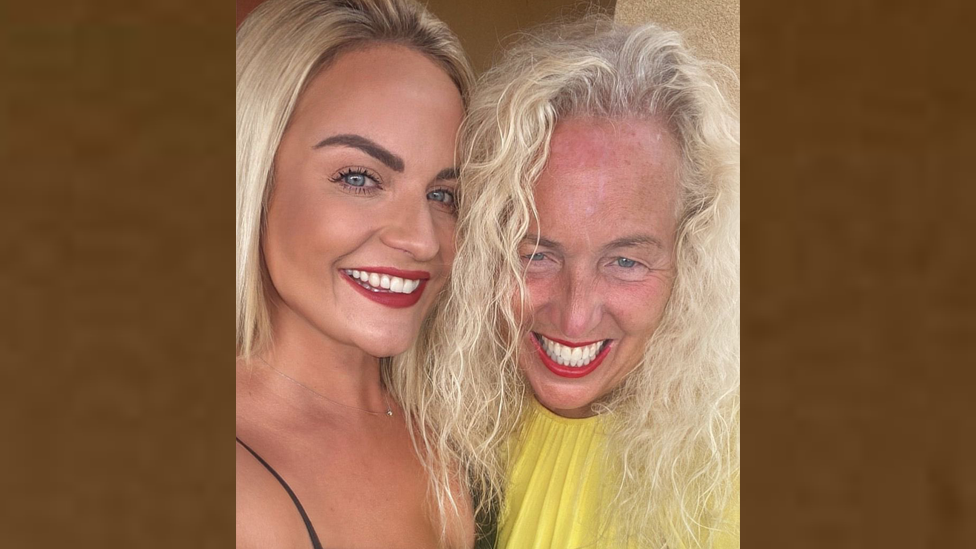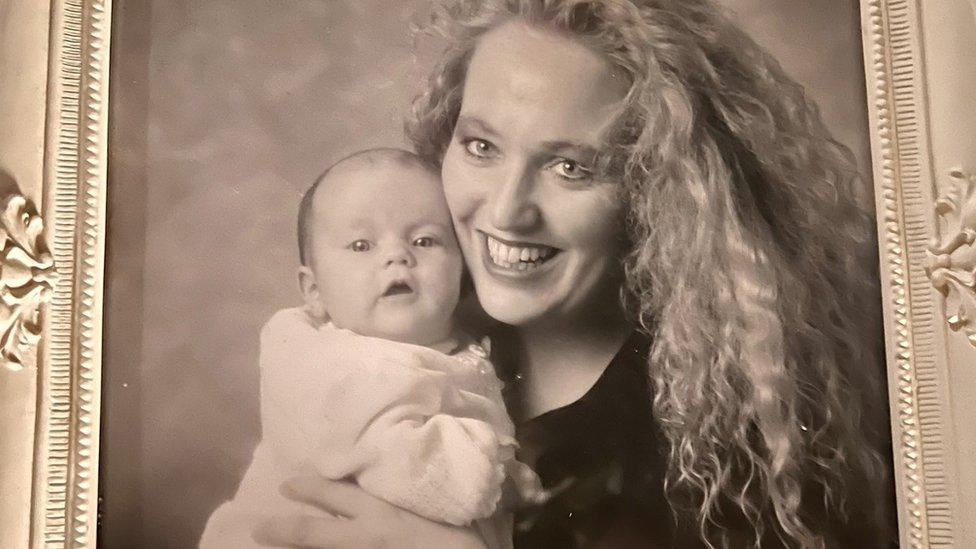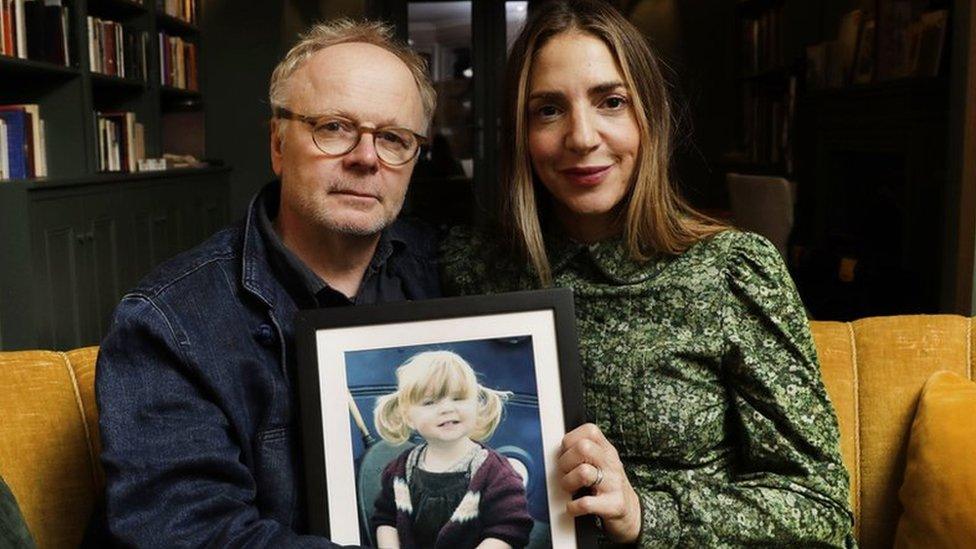TOWIE star Debbie Douglas says sepsis nearly killed daughter
- Published

Georgia Bright's temperature soared and she complained of not feeling her legs
A reality TV personality is reminding other parents and carers how to spot the signs of sepsis after her daughter's experience in hospital.
Debbie Douglas, who has appeared in The Only Way is Essex, feared Georgia Bright, 32, would die when her temperature soared last month.
She thanked the NHS for saving her life but said it was hard to convince some staff of the diagnosis.
Sepsis happens when the immune system overreacts to an infection.
"I just knew there was something more serious," she told BBC Essex.
"There is not enough training on sepsis; there are not enough red light signs, but most importantly, there's a lack of empathy, sympathy and kindness."

Debbie Douglas, pictured with Georgia as a baby, said she struggled to convince a GP and A&E staff about the sepsis diagnosis

Ms Douglas pictured with her other daughter and fellow TOWIE star Lydia Bright in 2018
Ms Douglas said Ms Bright, who lives in Loughton, moved into her home while suffering with suspected tonsillitis.
She said after a week without improvement, they visited her GP, who she said was unconvinced it was sepsis, and that her daughter's condition was only treated seriously after she was admitted to a hospital ward.
"In the ward they were absolutely, incredibly, fantastic, and thank you from the bottom of my heart to everyone in the NHS - you saved my daughter's life," she said.
Ms Douglas, who has been a foster carer for 30 years, said her daughter suffered a high temperature, jaundice, cold hands and feet and numbness in her legs.
Ms Bright is recovering at home but still complaining of chronic tiredness.
Actor Jason Watkins and wife Clara Francis recently appeared in an ITV documentary following the death of their two-year-old daughter Maude to sepsis in 2011.
He told BBC Essex: "It's easy to treat if you catch it early enough - if feels sometimes that you are standing by a train track with this train rushing by and you're ringing this bell really loudly but no-one is hearing you.
"It needs to be approached in a different way.
"You have to assume that if... the parent is worried enough for that child to be brought into A&E, then you have to test them for sepsis."

Jason Watkins and his wife Clara Francis lost their daughter Maude in 2011
Dr Ron Daniels, founder and joint chief executive at the UK Sepsis Trust, said: "The difference between life and death often hinges upon good fortune, families advocating for their loved ones and access to health professionals who are trained in and fully conscious of the need to 'think sepsis'."
The charity believes at least 48,000 deaths a year in the UK are related to sepsis.
A spokesperson for National Institute for Health and Care Excellence - the body which provides guidance on treatment for the NHS - said it recommends that health professionals treat signs of sepsis with "the same urgency given to those who complain of chest pain that might be a heart attack".
"Once in hospital they should be seen by a senior doctor or nurse straightaway," they said.
Information and support for those affected by bereavement is available at BBC Action Line.

Find BBC News: East of England on Facebook, external, Instagram, external and Twitter, external. If you have a story suggestion email eastofenglandnews@bbc.co.uk, external
Related topics
- Published6 April 2023

- Published30 March 2023

- Published8 November 2022
